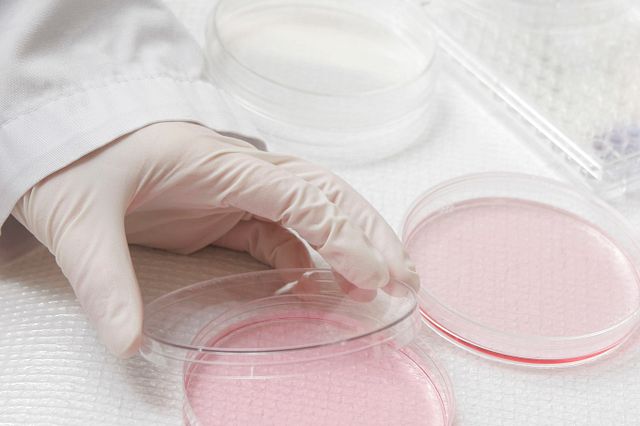ISO 10993-23 Irritation Testing for Polymer-Based AM Devices
The ISO 10993-23 standard is a pivotal guideline in the medical device sector, focusing on biocompatibility assessments. This specific testing method evaluates whether polymer-based additive manufacturing (AM) devices can cause irritation when in direct contact with skin. The test protocol is designed to ensure that materials used in AM processes for medical applications do not induce adverse reactions.
Understanding the nuances of this standard is crucial, especially for quality managers and compliance officers responsible for ensuring biocompatibility across a range of polymer-based medical devices. This service plays a critical role in the research and development (R&D) phase, offering insights into material selection and optimization before market introduction.
The testing process involves subjecting the device to controlled conditions that mimic real-world use scenarios. Specimens are typically prepared from the same raw materials used in the manufacturing process of AM devices. The test aims to determine if there is any visible or measurable irritation upon contact with human skin, which could indicate potential biocompatibility issues.
The ISO 10993-23 standard specifies a range of parameters that must be adhered to for accurate and reliable results. These include the type of polymer used, the thickness of the specimen, and the duration of exposure to skin. Compliance officers should ensure that all tests are conducted under these stringent conditions to validate the biocompatibility claims made by manufacturers.
For R&D engineers involved in AM processes, this testing is essential for identifying potential issues early in the development cycle. By incorporating ISO 10993-23 into their quality assurance protocols, they can ensure that their designs meet regulatory requirements and are safe for clinical use. This service not only aids in meeting compliance but also enhances product reliability and market acceptance.
The importance of this test extends beyond mere compliance; it directly impacts the safety and efficacy of medical devices. Ensuring biocompatibility is a cornerstone of medical device design, and ISO 10993-23 plays a vital role in safeguarding patient health by preventing irritation or allergic reactions from polymer-based AM devices.
The testing process involves several critical steps. First, the specimen must be prepared accurately according to specified dimensions and material composition. Then, it is exposed to skin under controlled conditions for a set duration. Following exposure, the skin is examined for signs of irritation such as redness, swelling, or changes in texture.
The use of advanced instrumentation and software ensures precision and repeatability in testing. This includes specialized equipment that can replicate real-world conditions, providing accurate data on material performance. The results are then analyzed to determine if the device meets biocompatibility standards set by ISO 10993-23.
Compliance with this standard is not just a regulatory requirement but also a testament to a company's commitment to patient safety and product quality. By offering this service, we provide clients with the expertise necessary to navigate these complex testing protocols effectively.
| Test Parameters | Description |
|---|---|
| Type of Polymer | Specific type of polymer used in AM device manufacturing. |
| Specimen Thickness | Detailed measurement required for accurate testing. |
| Exposure Duration | Duration under which the specimen is exposed to skin. |
| Test Conditions | Environmental factors that must be controlled during testing. |
The rigorous nature of ISO 10993-23 ensures that polymer-based AM devices are thoroughly evaluated for biocompatibility. This process is essential in the medical device industry, where safety and reliability are paramount. By adhering to this standard, manufacturers can ensure that their products meet the highest standards of quality and are safe for clinical use.
Quality and Reliability Assurance
- Precision in specimen preparation ensures accurate testing results.
- Controlled exposure conditions replicate real-world scenarios effectively.
- Advanced instrumentation provides reliable data on material performance.
- Compliance with ISO 10993-23 criteria guarantees consistent and repeatable tests.
The quality assurance process is critical in maintaining the reliability of test results. By adhering to these rigorous standards, we ensure that every test conducted is accurate and replicable, contributing to the overall safety and efficacy of polymer-based AM devices.
Competitive Advantage and Market Impact
The ability to offer ISO 10993-23 irritation testing services positions clients at the forefront of medical device innovation. This capability not only ensures regulatory compliance but also enhances product reliability, leading to increased market acceptance and trust among healthcare providers.
By demonstrating a commitment to patient safety and product quality through this service, companies can differentiate themselves in a competitive market. The ability to deliver high-quality, biocompatible AM devices is a significant advantage that can drive business growth and reputation.
Use Cases and Application Examples
The following table provides examples of polymer-based AM devices that undergo ISO 10993-23 irritation testing:
| Type of Device | Description |
|---|---|
| Custom Orthopedic Implants | Polymer-based implants tailored for specific patient needs. |
| Bioprosthetic Heart Valves | Valves made from biocompatible polymers that mimic natural tissue. |
| Custom Hearing Aids | Devices customized to fit individual ear canals precisely. |
| Molded Surgical Instruments | Disposable surgical instruments molded for precise use in surgeries. |
These devices are just a few examples of how ISO 10993-23 irritation testing is critical for ensuring the safety and efficacy of polymer-based AM devices. By offering this service, we support clients in developing innovative products that meet stringent biocompatibility standards.





